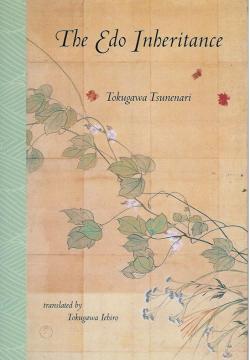The Edo Inheritance

International House of Japan, Tokyo, 2009, 200 pages including index and 30 pages of black and white engravings of famous places of Edo, ISBN978-4-903452-14-2
Review by Sir Hugh Cortazzi
Tokugawa Tsunenari is the eighteenth head of the main Tokugawa family (honke). He used to be an executive at the leading Japanese shipping company NYK. In 2003 he established the Tokugawa Memorial Foundation in Tokyo. He gave a lecture in London in the spring of 2009.
Tokugawa Tsuneari has tried in this book to present the Tokugawa Shogunate’s achievements. This is understandable in view of his position as head of the family, but his book cannot be read as an objective history of this fascinating period in Japanese history.
His book sadly contains almost nothing about the vibrant merchant civilization of Tokugawa which is surely one of the most important elements in ‘The Edo Inheritance.’ There is nothing in this book to explain the colourful and fascinating culture which developed despite the stultifying and often cruel bureaucracy which was a feature of the Tokugawa Shogunate. The index contains no reference to any of the great literary and artist figures of the era such as Basho, Saikaku, Kenzan, Korin, Harunobu and Hokusai to name only a few of the leading artists and writers who contributed so much more than the Tokugawa shoguns to the greatness of Japanese civilization.
The writer is right to emphasise that the Meiji Restoration was not the complete break with the past which some Japanese and foreigners have suggested that it was. He is also correct in drawing attention to positive features such as education in Tokugawa Japan. But his attempts to compare Tokugawa Japan with Europe, drawing special attention to the barbaric treatment of witches and the unsanitary behaviour of European courts, suggests that his study of European history has been at best superficial. His treatment of the third Tokugawa Shogun Iemitsu and of the fifth Shogun Tsunayoshi paints too rosy a picture of both men.
In his chapter on “The Natural and Spiritual Foundation of Japanese Culture” he asserts that “Japan is the only industrial nation in the world that has a civilization with a tradition of choosing to coexist with nature.” Perhaps, but Japanese governments over the last half century have done much to destroy Japan’s natural heritage with concrete excrescences and roads to nowhere.

